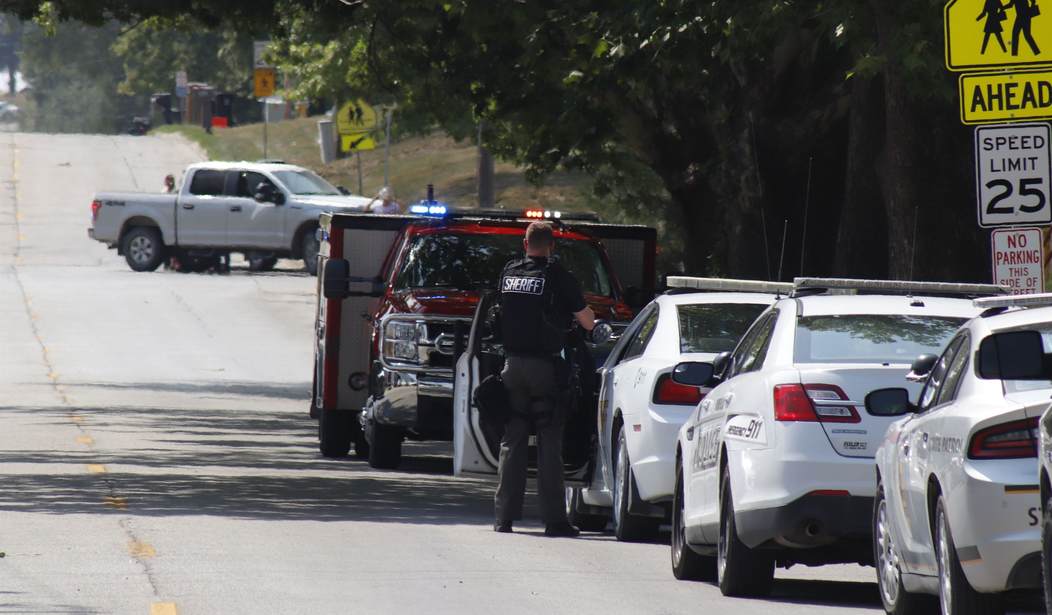Red Flag Laws, the more colloquial name for extreme risk protection orders (ERPOs), are all the rage and have been since Parkland. Anti-gunners have latched onto them as a means of perhaps creating gun control, at least for a handful of individuals.
More worrisome, however, is that many are latching onto this idea as a positive thing.
Since March, Florida and several states have passed red flag bills, bringing the total to 14 including the District of Columbia. Several Republican-majority legislatures have thwarted similar efforts in their states. But it may not matter. Armed with a new majority in the House of Representatives and seeming bipartisan support in the Senate, Democrats are closer than ever to passing new gun control legislation and federal “extreme risk protection orders” are the most likely to succeed in the next session. Why? Because prominent Republicans in the Senate, specifically Senators Lindsey Graham and Marco Rubio, are already on record with their own bills, adding to popular Democratic proposals in both houses.
“The Emergency Risk Protection Order is designed to fill a gap in current law,” Graham said upon introducing the bill with Democratic Senator Richard Blumenthal last March. “It can be utilized when an individual has moved into crisis, but has not yet committed a crime.”
“The bill we introduce today is a starting point,” Graham continued. “It’s the place where we begin a long-overdue discussion about firearms and mental health. But we must start.”
Nevertheless, a number of gun rights advocates are sounding the alarm. They say these laws violate constitutional due process protections, not to mention the Second Amendment right to own guns in the first place. Every state has a slight variation in standards, but in general these confiscation laws allow courts to issue emergency ex-parte orders based on the lowest “reasonable cause” evidence that the subject is an immediate danger to himself or others. This is typically issued with a search warrant, and does not allow the subject time to see or refute the charges, either with or without a lawyer present. The police simply show up at your door, which could mean a SWAT team in the middle of the night. While laws vary across states, the gun owner is guaranteed a hearing after so many days or weeks following the confiscation to contest the order and have his firearms returned.
“There are huge problems of due process—you’re having your constitutional rights taken away with no opportunity to present your side of the case or the facts,” said Dave Kopel, who teaches constitutional law at the University of Denver and serves as research director of the libertarian Independence Institute. He supports the red flag laws “in concept” but not how most of them are currently written.
As an example, the author refers to the story of Gary Willis. You may remember him. He’s the man who was shot by police who were trying to confiscate his firearms due to an extreme risk protective order.
Look, I don’t think these protective orders are a horrid idea. The problem is that they’re being created and enacted in such a slipshod way, all in an effort to be seen as “doing something.” Unfortunately, they’re so quick to try and do something that they’re ignoring due process. People are losing their guns over nothing.
Willis, for example, appears to have gotten the police visit because of what one family member called “family being family.” In other words, someone freaked out about something and got an ERPO against him. The police showed up at 5 a.m., and he answered the door with a gun, same as most of us would have at that early hour.
The results were fatal, but it seems unlikely that Willis was actually a threat to anyone. In fact, the ERPO might have been used as a punishment by a family member. Well, that family member won’t have an issue with Willis anymore, will they?
But now some Republicans are jumping on that bandwagon. While Lindsey Graham doesn’t surprise me all that much – he has a history of being a squishy Republican – Marco Rubio does. Sure, Parkland happened in his state, but still.
Unfortunately, this trend needs to die before there are more cases like Gary Willis.







Join the conversation as a VIP Member